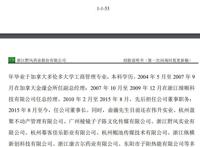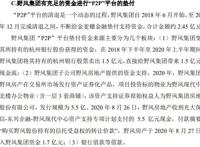子谦译文|创业教什么:六种主流创业理论的对比研究(39)
2023-06-03 来源:旧番剧
第五个概念维度涉及到反馈的作用以及它如何在创业活动中为创业者提供学习机会。从反馈中不断学习在塑造创业过程的轨迹中扮演着重要的角色。反馈可以是经过深思熟虑的信息收集过程的结果,就像精益创业、设计思维和发现型驱动型规划一样,它也可能是意外发现和偶然事件的结果,就像在效果逻辑理论和规范创业方法。在所有的创业方法,除了商业计划,都高度重视持续学习和新学到的创业洞察力的哲学基础,持续学习的来源强调的是外部环境的反馈。效果逻辑理论方法与其他方法有些不同,它较少的把持续学习作为一种固有的战略,而更多地把它作为遵循其他建议的副产品,在某种程度上,精益创业方法论和设计思维更加明确,将经过验证的学习作为其主要思想的基础。这种持续的学习需要重新审视和修正创业者在面对新获得的信息时所持有的短暂假设。4.5Iterative process 迭代过程
The sixth conceptual dimension relates to the temporal and evolving nature of entrepreneurial models. Entrepreneurship is a dynamic process that requires flexibility and constant adaptation (Bruyat and Julien 2001). All entrepreneurial methods, with the exception of business planning, describe models that allow entrepreneurs to react to new information and environmental conditions in dynamic and iterative ways. Regardless of the fact that these models could be understood as heuristics or algorithm-based, there is an explicit circular and repetitive aspect to them that suggests a continuous revising of assumptions and the reinvention of the process as new information is unearthed (cf. Argyris 1976). A major difference between the models proposed in these methods is what triggers the restarting of the process. In effectuation, the restart occurs when new stakeholders join the process, bringing with them a new set of means and expanding the set of possible futures tocreate(Sarasvathy 2003).Inthe other iterative models, the restart is triggered when new information is acquired through external sources as well as when the entrepreneur intuits a need to revise key assumptions. A subtle difference between methods is an emphasis on iteration. The lean startup methodology, design thinking, and effectuation are fundamentally grounded in iterative processes, whereas discovery-driven planning and prescriptive entrepreneurship include relatively minor feedback loops that may or may not result in iterative processes.
猜你喜欢
动漫推荐
免责声明:动漫番剧数据来源网络!本站不收费,无vip,请勿上当!
www.jiufanju.com-旧番剧





















